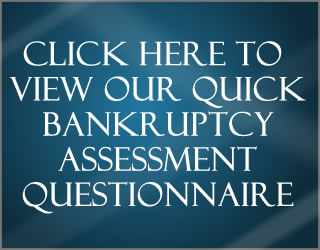Bankruptcy Law in Utah
This article will help you understand the basics of bankruptcy law, how inidividuals and families in Utah are affected by bankruptcy and some of the legal concerns you might have if you are considering bankruptcy.
Bankruptcy Law in Utah Governed by U.S. Law
First off, bankruptcy law is set forth by federal statute as required by the U.S. Constitution Article 1, Secion 8. This means that states do not have the authority to regulate bankruptcy through legislation, though they may pass laws that affect the relationship of debtors and creditors in other ways. Utah has some debtor-creditor laws that, although not directly covered in this article, may be worth understanding as you assess the possibilities when you are under extreme burdens of debt.
Bankruptcy law is generally used to allow someone in debt to one or more creditors but who cannot pay those creditors to resolve the debt by dividing their assets amongst their creditors. It enables those creditors to be treated fairly equally as they seek to be compensated for the financial obligations of the debtor.
Chapters 7 and 13 Bankruptcy Law
A Chapter 7 Bankruptcy is the most common type of bankruptcy and is called a liquidation. It involves the appointment by a bankruptcy court of a trustee who oversees the collection of a debtors assets, save those assets deemed exempt by the court, sells the assets and distributes the proceeds amongst the creditors. The other common type of consumer bankruptcy is a Chatper 11 Bankruptcy. Under a Chapter 11 a trustee is appointed to oversee the assets of the debtor and oversee a plan determined by the court whereby the debtor rehabilitates their status with creditors by allocating future income towards the creditors.
Though Bankruptcy Law has generally established the creditor’s interests, recent decisions by the U.S. Supreme Court have shifted some of the interests towards debtors. One of the most notable is the protection of Individual Retirement Accounts (IRA’s) from being included in the bankruptcy estate. This has vast implications for baby-boomers as they near retirement in an economic environment far different than we had just a few years ago.
Bankruptcy can be initiated by the debtor or by creditors who are seeking payment of debts owed. The general rule is that once a bankruptcy proceeding has been filed creditors may no longer seek payment of debts owed outside of the proceeding itself. This means that as a debtor you will be able to stop the ongoing creditor and collection agency calls once you file until the final terms of the bankruptcy are set forth.
Bankruptcy law is rife with legal nuance and the potential for a misstep is high. When considering bankruptcy, your debts and possible routes forward when confronted with an unmanageable debt load, it is highly recommended that you consult an attorney and be sure to garner all of the protections that bankruptcy law affords you.
As one of the most experienced bankruptcy firms in the state, you can fill confident in hiring our firm to represent you and give you the best chance of keeping the largest portion of your assets possible and coming out of the bankruptcy in the best financial position possible. Call us for a free consultation now.

